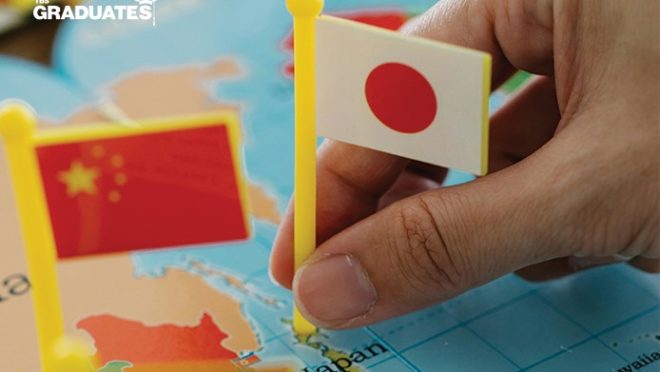A guide for Bangladeshi students in Japan
A guide for Bangladeshi students in Japan

Many Bangladeshi students have been moving to Japan to pursue higher studies. While Google covers most of the common FAQs, there weren’t any specific tips for Bangladeshi students. So, to make the transition to the “land of the rising sun” easier, we’ve invited our virtual local guide, Amimul, a student of Tokyo International University, to share some do’s and don’ts of living in Japan.
Do’s
- Even though you can travel in Japan without knowing Japanese, if you plan to live in the country long-term you need to learn the language and learn it well. Even if you cannot learn the whole language it is advisable to learn some common phrases to avoid being perceived as impolite.
- The first thing you need to do after landing in Japan is open a bank account. Foreigners who come to Japan with visas allowing a residency longer than 90 days will receive a Zairyu Card at the airport upon their arrival.
- If you don’t want to live in a dorm, you have to stay in a hotel or Airbnb while you look for a house to rent. While renting a house in Japan, you have to pay “Key Money” in advance, which is non-refundable. So, it’s wise to plan and bring that amount of money from Bangladesh.
- If you drive for a minimum of 3 months in Bangladesh with a driving licence, then you can convert that into a Japanese driving licence by attending a very short exam, which costs around Tk20,000. Otherwise, it will be very expensive (around Tk2 lakhs) to get a licence anew.
- Learn some basic cooking skills as eating out can be costly. Halal fresh meat may be scarce, but halal frozen options are available. Most Japanese food products are made with pig fat. If you are concerned about your food being halal, you must always check the ingredients, translate them with Google Translate, and then consume them. Some reliable platforms like “Halal Food in Japan” can help find halal restaurants and grocery shops, along with mosques nearby.
- Knowing food etiquettes and a few Japanese phrases can be useful. While receiving food or drink, accept it with both hands as a sign of respect. It’s customary to say “itadakimasu” before starting a meal, which roughly translates to “I humbly receive.” You have to say “gochisousama deshita” to express gratitude for the meal, which means “thank you for the meal.”
- You can easily get a SIM card online or get a tourist SIM from the airport temporarily. Many companies will provide you with a phone along with their SIM. Once you buy a SIM, if you block it (not pay bills or try to switch sims on the designated phone) before the contract period ends, you’ll be blacklisted from that company.
- There is a custom in Japan where most people do not eat food outside other than when in restaurants. However, when using the bullet train or the green car, you are permitted to eat food.
- Whenever you meet someone new at work, say “hajimemashite” after introducing yourself. Otherwise, people will find you rude. Most people like to exchange business cards at their first meeting. Use two hands to take it and take a moment to study the card before putting it away. Treat received business cards with respect and never write on them or stuff them into pockets.
- Companies will treat you to a welcome dinner after you join. If you don’t drink alcohol, you can mention your restriction and just drink juice. But it’s really important to attend those gatherings. Overtime work is common in Japan, so be prepared for longer hours if necessary.
- If you travel to other countries or cities, it’s good to bring back souvenirs for your colleagues, classmates, or teachers from that place. That’s called Omiyage in Japan.
- If you have any medical conditions or if you are taking any medication, bring extra supplies from Bangladesh. In Japan, most medications have low potency, like paracetamol.
- In Japan, employers pay on the 25th of every month. This means if you start working in January, then you will get the salary on the 25th of the second month. So, it would be better if you bring enough money to survive for 2-3 months from Bangladesh.
Don’ts
- In Japan, people are wary of tattoos. So, it’s safer to cover them up if you have any.
- Japanese people separate their garbage and every type of garbage has different collection dates. Never mix different types of garbage, otherwise, you’ll be fined.
- Instead of bringing digital devices with you, you can buy them at a cheap price in Japan. You’ll get top-notch quality, student discounts, and warranties on those devices.
- Japanese people are not particularly fond of foreigners, though they may not express this openly and will generally be polite to your face. Therefore, if you want to avoid causing any offence, it’s advisable to be extra polite and avoid being loud in public.
- It’s polite to eat quietly and not speak with food in your mouth. It’s also frowned upon to eat something while walking.


